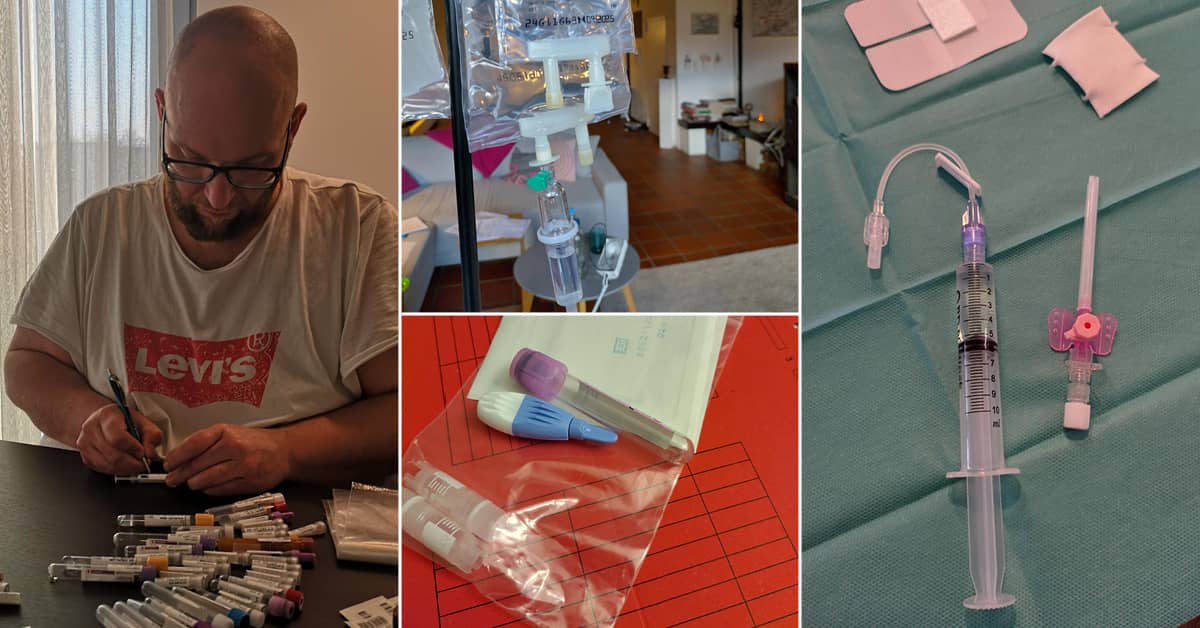
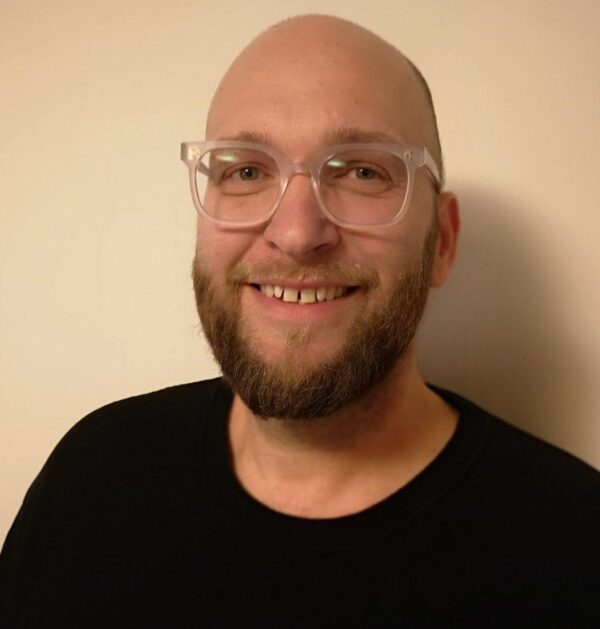
When you think of clinical research, you might picture hospitals, labs, and bustling trial sites, but there’s a whole other side to it – one that’s happening in patients’ homes. That’s where mobile health nurses like Sven come in.
With a background in intensive care, emergency services, and advanced nursing practice, Sven Schäfer brings clinical research directly to patients, wherever they are. In this blog, he shares what it’s really like to work independently as a mobile health nurse in people’s homes, often handling complex procedures solo while keeping patients informed, comfortable and at ease.
From navigating blood draws on your own to planning your entire visit logistics down to the last vial, being a mobile health nurse is anything but routine. Sven opens up about what drew him to this path, the practical challenges, the moments that have stuck with him, and what keeps him passionate about this unique role in decentralised trials.
If you’ve ever wondered what it’s like to step into this space, or if you’re already in it and looking for some shared experience, you’ll find Sven’s story both relatable and inspiring.
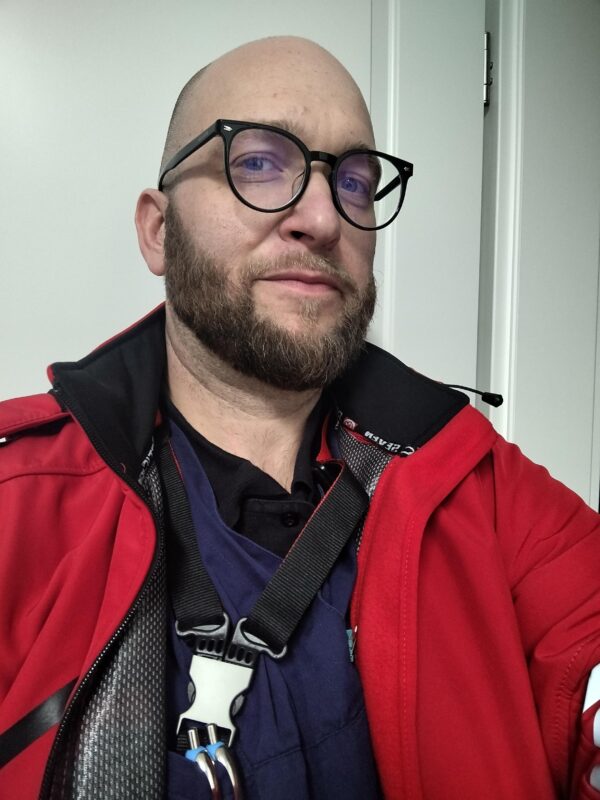
Sven Schäfer, mobile health nurse
Can you tell us a little about your background and what led you into nursing?
“I have both vocational training as a nurse and further training as a specialist nurse in anesthesia and intensive care. Additionally, I have also trained as an emergency paramedic.
I believe that my father’s illness with GBS with a months-long stay in the intensive care unit and extracorporeal assist system set me on this path at a young age; perhaps even subconsciously.
Today I am happy and proud to have taken this path.
I have continued my education and training, studied again and passed my Bachelor of Science in Advanced Nursing Practice with a grade of 1.2. My thesis topic was ‘ANP in Home Trial Support and Home Infusion Therapy’.”
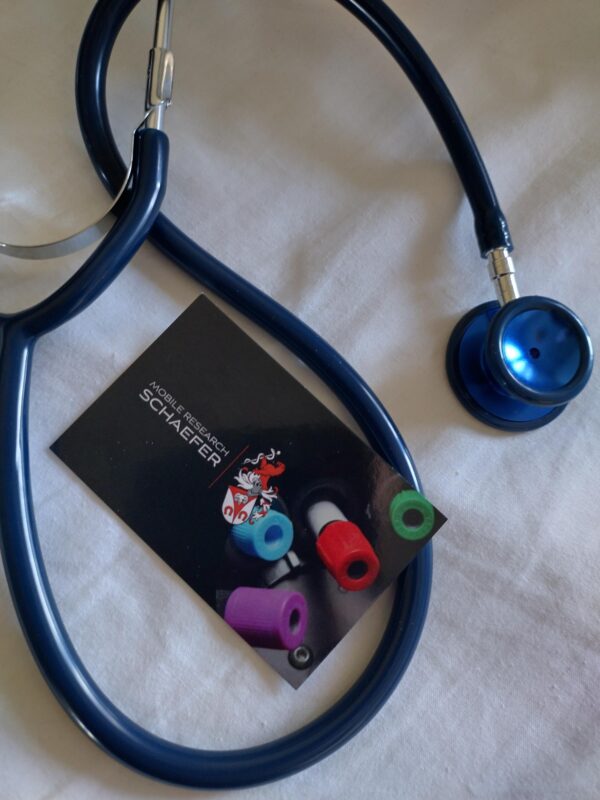
What drew you specifically to the mobile health side of clinical research?
“During my professional career, I have always worked as an outpatient and have also worked in the emergency services. It was always interesting for me to see the patient’s background and social life.
Working in the home is a challenge, because as a Clinical Trial Specialist you enter the intimate and private sphere of the patient. You are on your own during your work. You therefore need good skills, good preparation and a high degree of empathy.”
How is being a mobile health nurse different from a more traditional clinical setting?
“The special thing about home care and home trial support is the fact that you are on your own.
This means that they have to deal with hurdles when taking blood samples, processing blood, preparing the transportation of blood samples and administering study medication, sometimes venously, following delegation by the study doctor. Good comprehension, manual dexterity, experience in puncturing veins, emergency training, good communication and critical thinking skills and the use of modern media are essential.
You have direct contact with patients and travel a lot. For me, this has many advantages.”
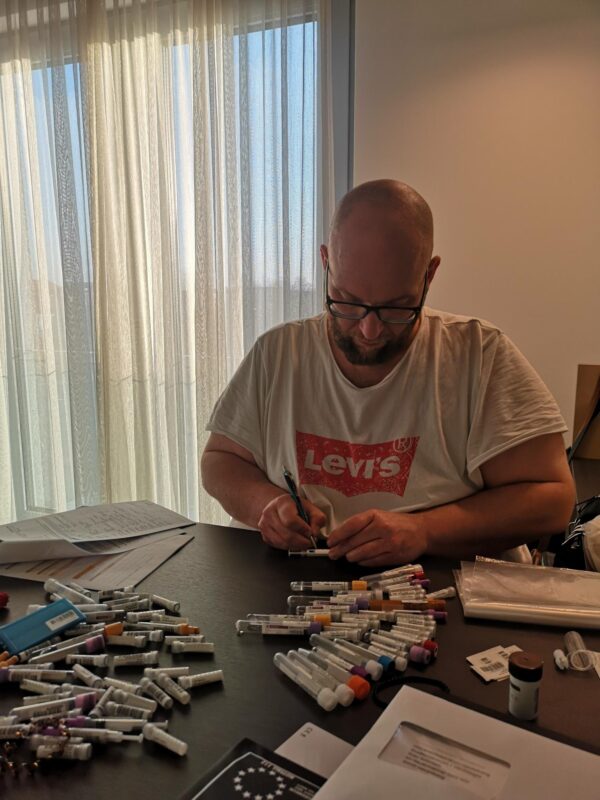
What type of procedures do you most often perform during your visits?
“Most frequently, this involves checking vital signs such as blood pressure, pulse and respiration. Very often, blood samples are taken, sometimes with a large number of samples and extensive processing of the samples on site at the patient’s home.
In some cases, study drugs are administered at home, both subcutaneously and intravenously. We also carry out SAE and AE reporting, document and communicate a lot.
Laboratory samples are prepared for shipment. Sometimes ECGs are written or spirometries are performed. The tasks are varied.”
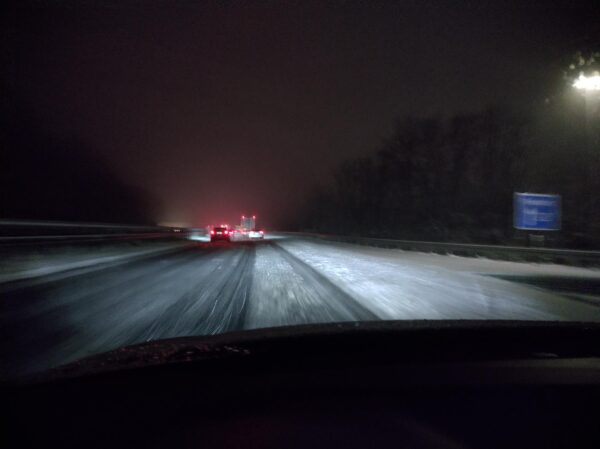
How do you usually prepare for a patient visit, especially when stepping into their home environment?
“I plan the journey to the patient extensively and a few days in advance and make contact with them. I check my material and make sure that I have all the materials I need for the study in question. Aids and medical devices are checked in advance.
On the day of the visit, I check the traffic and weather conditions before I leave. I pay attention to the patient’s privacy, any special surroundings, religious background and other eventualities such as pets and children. The most important thing is always to be human and communicate openly!”
Can you tell us about some of the clinical trials you’ve supported and how your role as a mobile health nurse fit into them?
“I have been able to accompany many studies in my career. Whether pediatric or geriatric. Many neurological, oncological and cardiological studies.
As an intensive care nurse myself, I come from a cardiology setting, so I feel very comfortable and confident in these studies. I have accompanied both drug studies and studies with medical devices.”
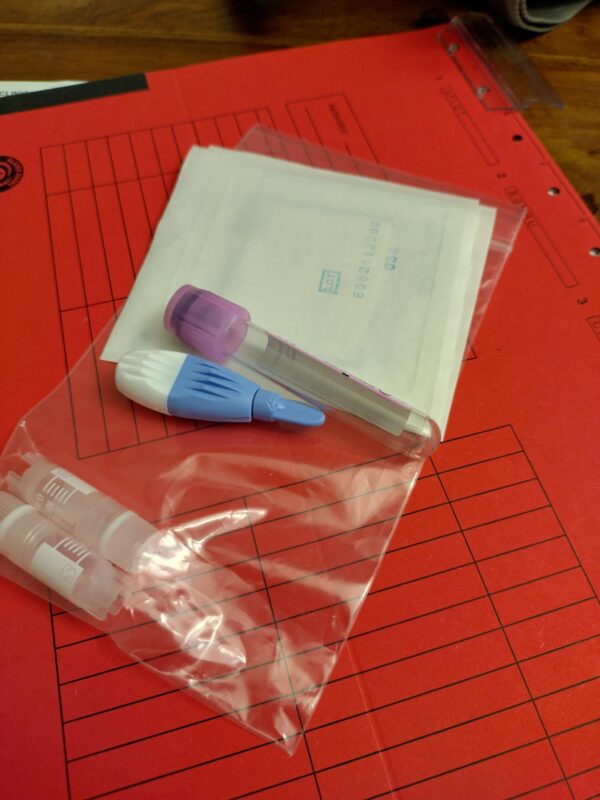 Have there been any patient stories or moments that have really stayed with you?
Have there been any patient stories or moments that have really stayed with you?
“Yes, there are a few. I accompany pediatric studies again and again. It’s very moving when medication from the study starts to have a positive effect and you experience the parents’ emotions. I have been accompanying some patients in trials for a very long time, sometimes for several years. It’s always like coming home.
The patient is always waiting with a cup of coffee. Empathy and communication must not be neglected in the patient’s home.
There are always special challenges in studies and in dealing with patients. Gratitude is what comes their way when they go the extra mile. Sometimes they are literally on the road and on the highway for a long time. The patients are grateful for this.”

How have you seen the role of nurses in clinical research change or evolve over the years?
“Without the study coordinators and, in the area of home trials, the travel nurses and all companies involved in home trials, it would simply not be possible to carry out the studies in patients’ homes.
The profession and the service are constantly evolving and developing! The studies are becoming more complex, the diseases are becoming more complex. The training and processing are becoming more extensive, more and more data is being collected, and the service to patients is also becoming more extensive.
Ultimately, you are a specialist service provider. I support these special services with my small company and look forward to the challenges every day.”
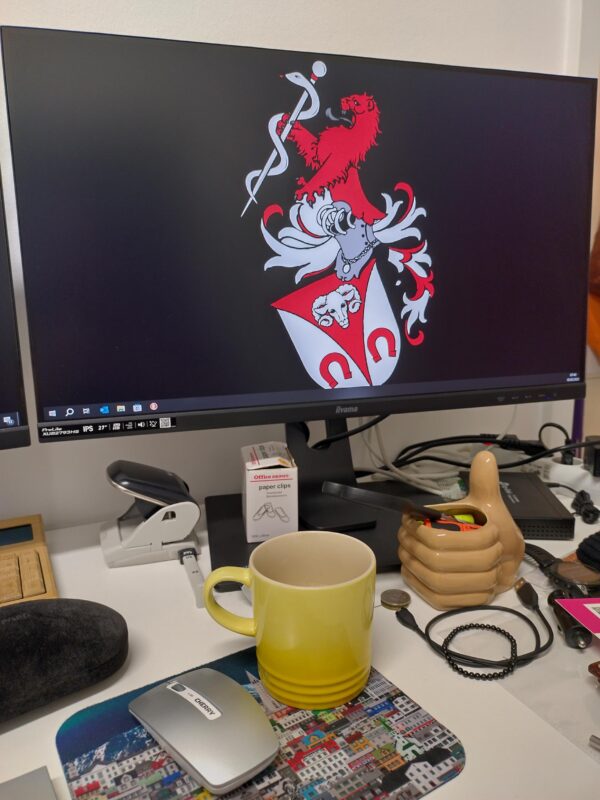
What would you say to someone who’s curious about becoming a mobile health nurse?
“If they are keen to travel, can work alone, is not afraid of emergency and special situations but has respect, can communicate well, can sometimes control chaos and always has an open ear and eye, he or she should be happy to try it out.
It is a special profession and a vocation!”
In what ways do you feel your work helps bridge the gap between patients and clinical research?
“I consider my work, my own company and the work of all my colleagues in Home Care and Home Trial to be indispensable! Closing this gap is long overdue and must be driven forward, especially in Germany. I look forward to further exchanges with all those involved and to the future!
In my opinion, decentralized studies will be the future of clinical trials. With the inclusion of artificial intelligence, digitalization, future trends with New Work and Silver Ageing, as well as the trend towards lifelong health maintenance, studies in the patient’s home will be of great importance.”
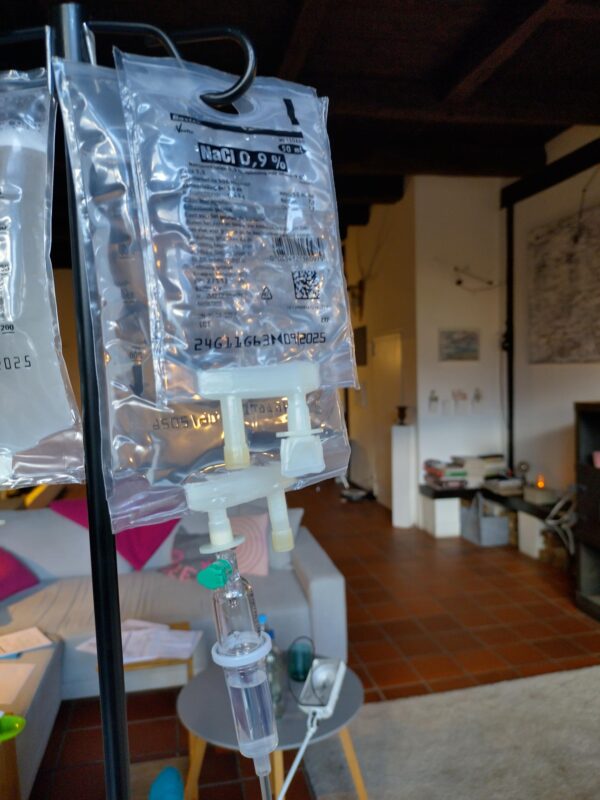
How do you make sure the patient experience stays front and centre throughout your visits?
“Every patient is an independent personality and has their own story. They are the most important part of the study and I try to focus on this experience with my work and my skills!
Not only CROs, sponsors and the pharmaceutical industry, as well as PIs and study coordinators are components of a functioning study. It is above all the patient – I see them as part of the study team! If not the most important part…”
Mobile health nurses as the key part of clinical research
Sven’s story is a powerful reminder of the vital role mobile health nurses play in bringing clinical research to life, not just through procedures and protocols, but through empathy, adaptability and deep human connection. Whether it’s navigating complex trial requirements solo or simply showing up with a smile and a steady hand, nurses like Sven are changing what patient care can look like in the world of decentralised trials.
At Seacole Health, we’re proud to work with professionals like Sven who are shaping the future of research nursing. As part of mdgroup, we offer our nurses opportunities to work on studies that are pushing the boundaries of medicine, all while supporting their personal and professional growth. Whether you’re new to mobile health or looking to take the next step in your career, we’re here to help you find your place – explore our opportunities today.



